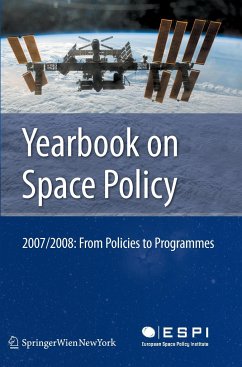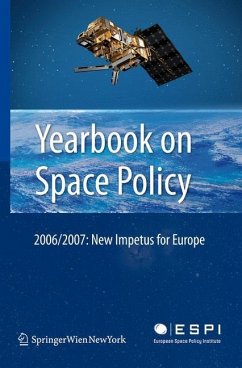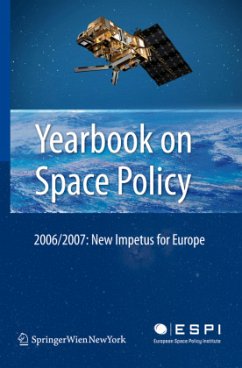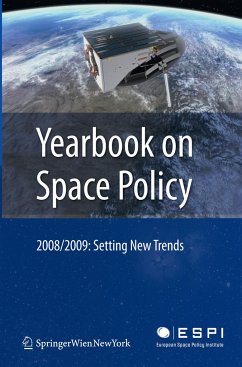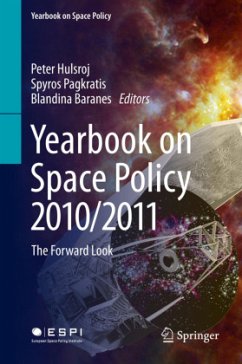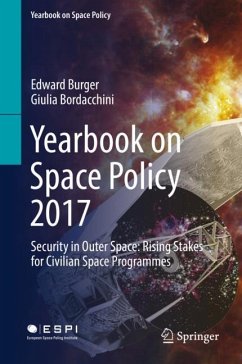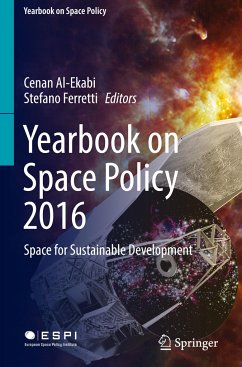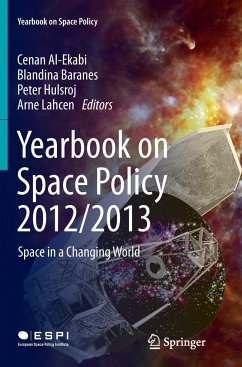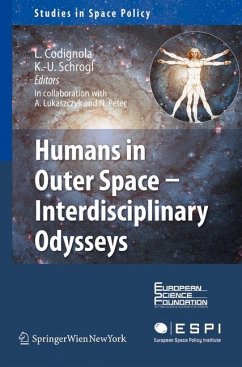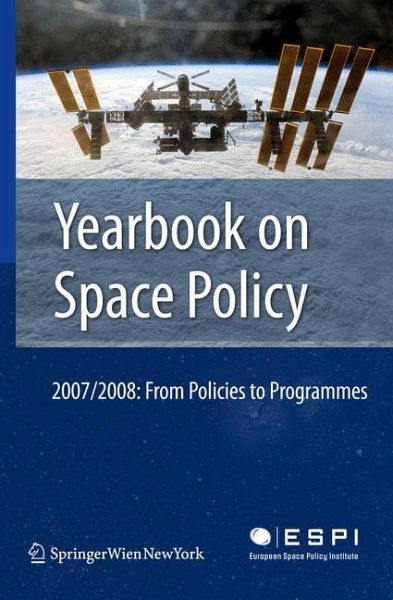
Yearbook on Space Policy 2007/2008
From Policies to Programmes
Herausgegeben: Schrogl, Kai-Uwe; Mathieu, Charlotte; Peter, Nicolas
Versandkostenfrei!
Versandfertig in 6-10 Tagen
113,99 €
inkl. MwSt.

PAYBACK Punkte
57 °P sammeln!
The Yearbook on Space Policy aims to be the reference publication analysing space policy developments. Each year it presents issues and trends in space policy and the space sector as a whole. Its scope is global and its perspective is European. The Yearbook also links space policy with other policy areas. It highlights specific events and issues, and provides useful insights, data and information on space activities.
The Yearbook on Space Policy is edited by the European Space Policy Institute (ESPI) based in Vienna, Austria. It combines in-house research and contributions of members of the European Space Policy Research and Academic Network (ESPRAN), coordinated by ESPI.
The Yearbook is addressed to decision makers in governments and agencies, professionals in industry as well as the service sectors, researchers and scientists and also to the broader public interested in the field.
The Yearbook on Space Policy is edited by the European Space Policy Institute (ESPI) based in Vienna, Austria. It combines in-house research and contributions of members of the European Space Policy Research and Academic Network (ESPRAN), coordinated by ESPI.
The Yearbook is addressed to decision makers in governments and agencies, professionals in industry as well as the service sectors, researchers and scientists and also to the broader public interested in the field.
At the time of ?nalising this second volume of the ?Yearbook on Space Policy? which covers the period mid-2007 to mid-2008, Europe is as visible and strong in the area of space activities as never before. Its space probes are present on the Moon, around Mars, and on Saturn?s Moon Titan, and are chasing asteroids and comets; Ariane V is the most successful commercial launch vehicle; and more and more European space applications satellites are in operation. Finally, with the successful launch of the Columbus Orbital Facility (COF) - the most prominent highlight of this period which is also depicted on the cover of this Yearbook - and the ?rst Automated Transfer Vehicle (ATV), Europe has become a decisive player in human space?ight. This is accompanied by new policy initiatives on the ministerial level which have been bringing the European Space Agency and the European Union steadily closer. Europe?s outstanding development and positioning in the space ?eld is based not only on Europe?s successful engineering and scienti?c capabilities and capacities, but also on the forceful political determination of all European actors to maintain and even further their engagement in the use of outer space. And it is this political determination which provides the focus for this ?Yearbook on Space Policy?. The Yearbook describes and analyses the contexts and contents of space policy. Its primary ?eld of investigation is Europe, but it also covers the whole range of global space activities and their in?uence on European endeavours.



